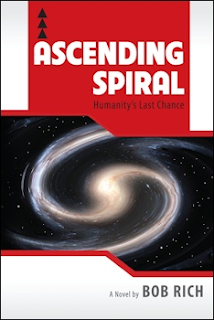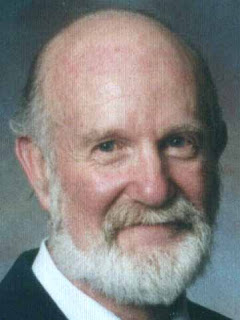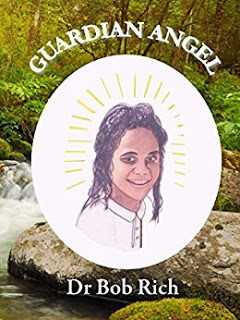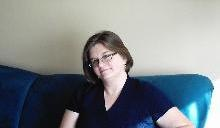
Today we’re lucky to have Dr. Bob Rich join us.
I’m reposting the article for those of you who might have missed it the first time. Bob writes books that make you think. I find them fascinating and usually not what I was expecting.
Plus, Bob is going to giveaway 3 books to 3 people who comment on this post. A great way to check out a new author if you haven’t read his books.
Welcome Bob, and thanks for your generosity in giving away three books.
Beverley asked me to talk about heroes. Theyare definitely a Good Thing in a story, and so are villains, but neither are necessary. My science fiction novel Sleeper, Awake [ http://bobswriting.com/sleeper.html ] doesn’t have any villains at all. It is full of conflict, and misunderstandings, and strife, but we can see that everyone is well-intentioned from within their own frame of reference. There are two heroes, but you don’t find out who they are until the last few paragraphs (it is cheating to peek ahead).
I didn’t plan it that way — this was what revealed itself to me. Mind you, there are many other hidden heroes. The best one is Sam in Tolkien’s Ring Trilogy. People take Frodo to be the hero. After all, he is the Ring Bearer, and all the baddies attack him, and all the goodies support him, but… but everything he achieves is thanks to Sam. When Frodo collapses, Sam looks after him. When Frodo loses hope, Sam gets him to keep going. Always in the background, always self-effacing, he is the person who makes it all possible.
This also happens in real life. Edmund Hillary is everyone’s hero of Everest, but Tenzing Norgay is at least his equal.

Certainly, most of my favorite books are clearly focused on a hero. This includes The Belgariad by David Eddings. It is all about Garion, a somewhat bumbling boy bred over many generations to be the one who is destined to duel with a god. I have also read every book Dick Francis has written. Each has a hero who appears to be an ordinary man at the beginning of the story, but in reaction to terrible circumstances, he achieves extraordinary things. The underlying message is that we all have heroism within us.
I think that’s what heroes are for.
We can use them for boosting a tiny ego, as in Walter Mitty, who imagined himself in every role he came across as a larger-than-life heroic figure, or, at the other extreme, we can be inspired to change our lives and become better people because we wish to be like that person in the story. In my work as a psychotherapist, I have come across many instances of a fictional person being a positive influence in someone’s life.
Personally, I’ve used a hero in a variation of this. There is a psychological technique I’ve often used with my clients: “Write a film script in which the hero has experienced your life, and lives in your circumstances. Only, have this person behave in the way you wish you could.” We encourage the client to make the film script as concrete, detailed and vivid as possible. Then, of course, we ask the client to step into the role, and ACT it. Well, I don’t write film scripts but novels, so that’s what I did for myself. My novel Ascending Spiral [ http://bobswriting.com/ascending.html ] is the story of Pip, including several of his past lives. Actually, all of Pip’s experiences are from my life. His history and circumstances are mine. I’ve made enough changes to protect the guilty, but otherwise Pip is my doppelganger. Only, he handles everything in the way I wish I had. He is the hero I aspire to be, as a self-therapy. This includes the past lives: an Irish boy in Viking times; an Irish peasant caught up in the rebellion of 1798, and then transported to New South Wales to be a slave; a cultured, sensitive young woman in Victorian times who marries a monster; a person with completely different anatomy and physiology on a faraway planet somewhere; a Space Flower who lives in the space around a star and can move from one star to another; and a Jewish boy born in Hungary while the bombs were falling, who comes to Australia to become a psychologist.
The point of the book is to make a difference in the lives of my readers. As an excellent by-product, it has made a difference in my life.

Beverley has asked me if a story can have more than one hero.
Yes. My novel Hit and Run [ http://bobswriting.com/hitandrun.html ] is only waiting for a cover before being published. Incidentally, while we are waiting, I am happy to send out free advance review copies to anyone who asks. Link is at my website. Of course, the payment is a review. The two major characters in the story are completely different. Sylvia is an 84 year old lady whose body is full of pain, and who has a lot of self-doubt, but she earns everyone’s admiration while doing her best to save a multiple murderer from himself and from a society which has only one reaction to crime: punishment. I wish I could be like Sylvia, and every reader’s response so far has been the same. She is an admirable hero who indeed could influence you to change your life.
The other hero is the multiple murderer, the delinquent from the slums. His abuse started at birth, when his mother named him Chuck (because she’d vomited lots during the pregnancy). It never stopped. He hated the world, hated everyone except his little brother, so at fourteen years of age he set out to kill as many people as possible. He succeeded in murdering seven little children and the crossing supervisor, barely missing old Sylvia. He is a hero for two reasons: while Sylvia is the narrator, Charlie is the focus of the story. And his progress is something people don’t believe possible, but is realistic. I have worked with clients who turned away from crime and violence and became decent people, invariably because they identified with a major figure in their lives. There is research to support the validity of this concept. So, if you get to understand and like Charlie, your attitude to the baddies of your life may change, making you into a better person. I’ve said, that’s a hero’s role.

My just-published story Guardian Angel [ http://bobswriting.com/guradian.html ] has a very different hero. She is an angel, but one who has never been a human, so needs to live a few human lives in order to understand us. This means, she needs to experience suffering and joy, hate and love, all the many facets of being a person on Earth. She chose a life to give her maximum opportunity for learning. Her arrival was in 1850, so she decided to be born into an Aboriginal family in New South Wales, what is now Australia.
All readers but one so far have loved the story. The one exception is a friend who rejects paranormal phenomena like angels and telepathy and stuff. Well, this is to publicly let him know, there is interesting suggestive evidence for the existence of angels — people who no longer need to be born into a body because they have learned the ultimate lesson of unconditional love for all living beings. Many people are sure there are guardian angels, because of personal experiences they can interpret in no other way. For example, I have a friend who was once driving on a narrow, winding road, alone in her car. Without warning, she heard a male voice shout, “Pull over!” In automatic response, she wrenched at the steering wheel — and a speeding car coming the other way rushed through the space she’d just vacated.
OK, what should a hero be like? My best model is the typical Dick Francis character. The hero should be sufficiently like you and me to enable us to make an identification (“Yes, I could be that person”), but through a series of natural-seeming steps, should become larger than life. We as readers should come to deeply care for the hero, compelling us to read on.
Having re-read my little essay, I’ve realized something. If my definition is right, many stories don’t have heroes, but only protagonists: people the story is about. These are the books we read and forget.
Bio
Dr Bob Rich is an Australian storyteller with 16.5 published books, 5 of them award-winners. He has so far retired from 5 different occupations, but is still a writer, editor, environmental campaigner and, above all, professional grandfather. All the kids on this planet qualify as his grandchildren, so if you have a miniperson in your life, Bob sends a hug. Because he cares for kids, everything he does, including his writing, is aimed at saving a future for them, and a future worth surviving in.
BUY LINKS
http://bobswriting.com/ascending.html
https://bobswriting.com/guardian.html
https://www.goodreads.com/book/show/6989862-sleeper-awake
You can contact Bob at these web sites
Blog https://bobrich18.wordpress.com
Writing site http://bobswriting.com
Psychology site http://anxietyanddepression-help.com
Conservation site http://mudsmith.net
Don’t forget to leave a comment for one of those free books.
And after the weekend check out the permalink at https://beverleybateman.blogspot.com.au/2017/06/heroes-or-protagonists-with-dr-bob-rich.html
It will be up until July 1st when he’ll announce the winners of the books.


